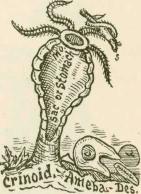INDIVIDUALITY AND DEPENDENCE. 81
themselves to the kinds in which they excel, and thus the various trades and -professions come into existence. One man makes arrowheads, another blankets, another huts and so on.
Along with, or out of, this division of labor there grows a far greater degree of mutual dependence between the members of society. And this increases just in proportion to the advance of civilization and social unfolding. For the men of each trade must exchange their products with those of other trade .
While all this makes men more dependent, it also makes them more completely individualized. The most highly individualized man is the one who has depended upon the greatest number of his fellowbeings for the materials, the comforts and the luxuries of life. For he has been subject to the greatest number of diverse and moulding influences.
The farmer is dependent upon the tradesman, the grocer, the carpenter, the shoemaker and those of a hundred other trades. And conversely each of these is dependent upon the farmer and upon all the others. The greater the degree of individuality the greater is the degree both of mutual dependence and of social unity in action and in feeling.
But while labor and exchange remain in the stage of competition, there is no formal or practical recognition of these mutual dependencies. There is no provision to secure organized unity of action. Instead of this, we only find a selfish antagonism of interests. Every man's hand is against that of his neighbor. What is for the interest of one man in civilism, is against the interests of.the rest. Such is the state of
industry in all civilized nations in this year of 1884, common era. The agricultural society is not connected with the state government, the temperance society is severed from the schools, commerce is divorced from art, literature is separated from finance, for mental and physical wealth seem to have no connection, the scientists do not mingle with the laborers, and culture is not made a test of fitness for official positions.
No civilized statesmen seem wise
enough to provide for the united action of these independent interests. Science proves and experience confirms their constant and important interdependence. The statesmen have left their connection wholly to chance or accident. The result of this chance work is
that society is a vast aggregation of discordant and mutually interfering or destructive organizations.
The social structure thus comes to resemble the very low forms of animal life, like the polyps and jelly fishes, instead of higher forms. Let us consider the division of labor in these lower animals.
THis DIVISION OF LABOR and the changes of
structure form the important law of specialization. And this affects the career of everything, whether it be the formation of a world, of an animal, or of a nation. The functions and actions which, in early stages of evolution are performed in a rude and general way by a few organs or parts, or else by many parts of a similar form, are gradually divided up among a greater and greater number of unlike
